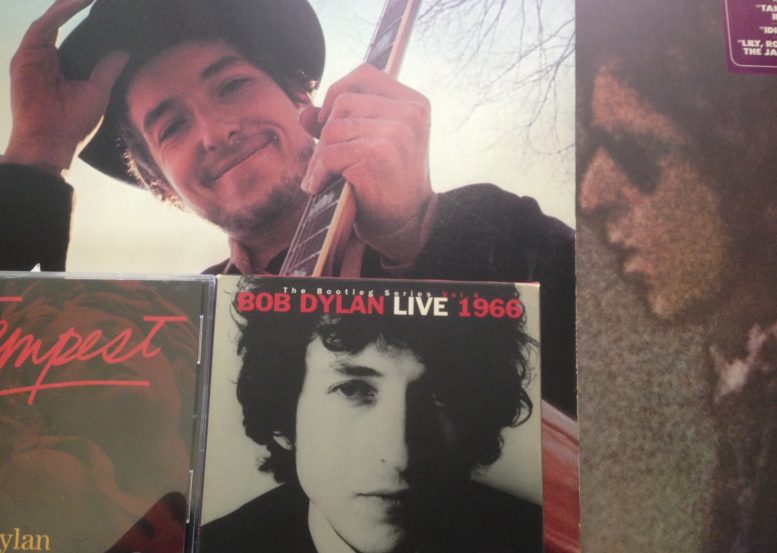By DAVID DUPONT
BG Independent News
The times they are a changin’ in Stockholm.
This year the Nobel Prize committee surprised the world by awarding the Literature Prize to songwriter Bob Dylan for “having created new poetic expressions within the great American song tradition.”
Jack Santino, a professor of popular culture at Bowling Green State University, said the announcement had “an element of surprise.”
“It’s expanding their rubric of what literature is,” he said.
Lawrence Coates, who teaches in BGSU’s Creative Writing Program, noted Toni Morrison was the last American to win the Nobel for Literature, back in 1993.
“That’s a long stretch without an American being recognized,” he said. And while as a fiction writer he has his own ideas about who would be fitting recipients of the prize – authors Don DeLillo and Cormac McCarthy – he nonetheless sees Dylan as a good choice.
“That he works in the popular tradition of song is great,” Coates said. “Having somebody who writes and performs goes way back to the roots of literature. I appreciate the Nobel committee looking beyond literature having a very limited audience to literature that has a very broad audience.”
“Often song lyrics don’t work when you just read them,” Santino said. Though lyrics as “stylized language” are closest to poetry as a literary genre, songs are a hybrid, akin to the graphic novel.
“The curious element of it is a songwriter being canonized opens the floodgates for all sorts of things,” he said. Santino expects the choice will spark debates about what is and isn’t literature.
“He has an ability to write a couplet, or to sum up a thought in a very catchy line or two, and they sort of enter into oral tradition which an interesting development is given his professional relationship to folk music,” Santino said.
Santino said he jokes that the most common sources of catch phrases are the Bible, Shakespeare and Bob Dylan. People often don’t even know they are using Dylan’s words, he said.
Coates noted the enduring power of the work after reciting a stanza of Dylan’s “Times Are a Changin’” in the course of the interview.
The songwriter’s legacy is firmly rooted in his early career in the 1960s, Santino said. “He was an enormous presence at a particular point in history.”
He emerged “at the same time, or maybe a tiny bit in advance, of when the American cultural scene was changing.” Dylan’s ability to express that, and even anticipate it “put him into that prophetic status.”
Coates said: “One of the things that impresses me about Dylan is the long productive life he’s had, and the body of work he continues to add to. … Dylan continues to be active productive artist. That’s something all artists would respect. He’s still writing today.”
Coates also feels even Dylan’s earliest work continues to be important. “I hope people can look at those songs and popular movements to address the problems the world’s having like climate change or the ongoing wars,” he said. “I don’t see his music as only tied to certain era. It’s still relevant today.”

